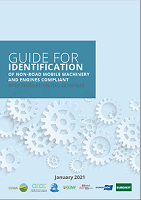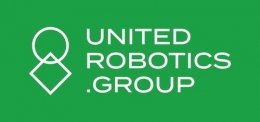
June 2015
New Study Confirms: Use of Robots Fuels Growth and Productivity
EUnited Robotics position: Often cited Osborne/Frey study lacks significance
There is a series of recent scientific publications analyzing the effects of automation on employment that come to very different conclusions. A recent independent study by Graetz and Michaels confirms that the use of robots significantly increases economic growth and labor productivity, thus contributing to the wealth of our society. An often cited study by Osborne and Frey on the contrary gives a one-sided view of the consequences of automation and thus cannot be used to interpret the effect of robots on jobs.
A recent study of George Graetz from the Uppsala University and Guy Michaels from the London School of Economics[1] looks at the economic impact of industrial robots, reaching the conclusion that the use of robots raised the average growth rate of the countries examined by 0.37 % - which equals 10 % of the total average GDP growth. Besides increased labor productivity and value added per worker, wages and total factor productivity went up as well. While the study finds no significant effects on the overall employment, there is some evidence that low-skilled workers are at a disadvantage.
C.B. Frey & M.A. Osborne from the University of Oxford[2], are looking at the future effects of computerization, coming up with probabilities on how susceptible occupations are to being automated. They interpret the technological feasibility that computer-controlled equipment (incl. mobile robotics) can at some not defined point in the future take over tasks that are currently performed by human workers. They neither give any estimation on how long it will take until technology will be ready, nor do they look at the economic viability of automation. They also ignore what and how many new jobs will be created. Moreover, the effects of machine automation, e.g. the increasing use of robots and digitalization as well as the increasing use of software and cloud-based tools, are not distinguished. As the authors themselves point out, the study makes “no attempt to estimate how many jobs will actually be automated”.
It is also doubtful that looking at professions rather than the distinct tasks a worker is performing gives the right picture - an economist for example can perform quite different tasks depending on where he/she is working. This theory is affirmed by a recent study performed by the Centre for European Economic Research commissioned by the German Federal Ministry of Labor and Social Affairs[3]. They conclude that only 9% of jobs in the US show a high risk of automation. By comparison, Osborne and Frey’s estimate is 47%.
There is no arguing that the nature of work is changing and some jobs may be replaced by the use of robots and ICT equipment in the near and remote future. But technological advances have always led to the creation of new jobs. A lot of them will also require new skills from the workers. It is the responsibility of our society to make sure that educational systems take this into account. We need to adapt the professional training and develop appropriate schemes for re-training - so no one is left behind in a knowledge-based economy.
[1] G. Graetz and G Michaels, ”Robots at Work”, CEPR Discussion Paper 10477, March 2015.
[2] C.B. Frey, M.A. Osborne, “The future of Employment: how susceptible are jobs to computerization?”, September 2013
[3] H. Bonin, T. Gregory, U. Zierahn, „Übertragung der Studie von Frey/Osborne (2013) auf Deutschland“, Bundesministerium für Arbeit und Soziales, ZEW, April 2015
Industrious Brussels EU District, Avenue des Arts 6-9, 1210 Brussels, Belgium, +32 490 57 57 65
Transparency Register number: 0289344948-82














































































































